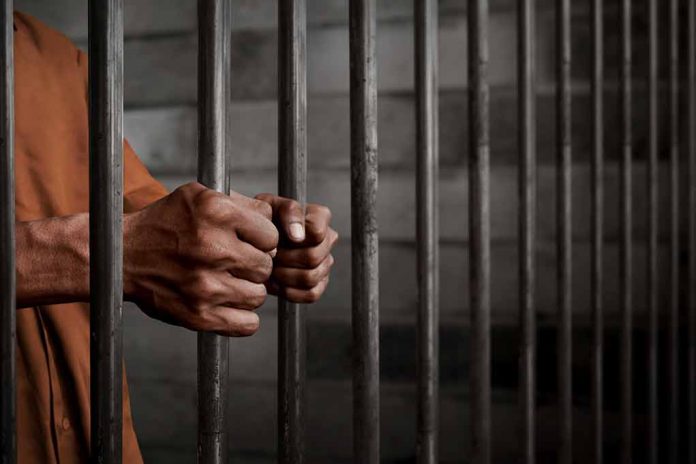
President Trump’s proposal to deport violent American offenders to El Salvador for incarceration sparks a heated debate on legal and ethical grounds.
Key Takeaways
- Trump proposes sending American convicts, particularly violent repeat offenders, to foreign prisons for a fee.
- El Salvador’s President Nayib Bukele has offered to house U.S. convicts in El Salvador’s jails.
- The proposal raises significant legal and ethical challenges, including concerns about prison conditions and compliance with international laws.
- Secretary of State Marco Rubio has discussed the offer with Bukele, signaling serious consideration of the proposal.
- The initiative is part of broader efforts to address crime through international cooperation, but requires careful evaluation of potential consequences.
Trump’s Controversial Proposal
President Donald Trump has put forward a contentious plan to send American convicts, particularly violent repeat offenders, to foreign prisons for a fee. This unprecedented proposal aims to address hard-hitting criminal offenses within U.S. borders while potentially alleviating the strain on the American prison system. Trump claims that several countries have expressed willingness to take U.S. criminals and act as their jailers, with El Salvador emerging as a potential partner in this endeavor.
The proposal has gained traction with El Salvadoran President Nayib Bukele offering to house violent U.S. convicts in El Salvador’s jails. This offer extends to dangerous criminals from any nationality deported by the U.S., including members of violent gangs like MS-13. Bukele suggested that the U.S. could outsource part of its prison system to El Salvador for a fee, which would be low for the U.S. but significant for El Salvador’s economy.
BREAKING: U.S. Secretary of State Marco Rubio announces that El Salvador’s president has agreed to accept deportees from the U.S., regardless of nationality, as well as violent criminals currently imprisoned in America. pic.twitter.com/sPIbBAt6XW
— Breaking911 (@Breaking911) February 4, 2025
Legal and Ethical Challenges
While the proposal may seem appealing to some as a potential solution to the U.S. crime problem, it raises significant legal and ethical challenges. Trump himself has acknowledged uncertainty about the legality of transferring American convicts to other countries. The plan would need to navigate complex international laws and agreements, as well as potential constitutional challenges.
One major concern is the condition of El Salvador’s prisons. The U.S. State Department has described these facilities as harsh and dangerous, with reports of overcrowding and inadequate facilities posing health and safety risks to inmates. This raises serious ethical questions about the treatment of American citizens in foreign detention facilities.
Diplomatic Considerations
Secretary of State Marco Rubio’s discussions with President Bukele indicate that the Trump administration is seriously considering this proposal. The agreement would potentially allow for the deportation and incarceration of criminals with U.S. citizenship and legal residence status. This aspect of the plan could have far-reaching implications for U.S. immigration policy and diplomatic relations.
The proposal is part of a broader effort by the Trump administration to address crime through international cooperation. However, it demands careful consideration of potential diplomatic consequences. The treatment of American citizens in foreign prisons could become a significant point of contention in international relations.
As this proposal continues to evolve, it will undoubtedly face scrutiny from legal experts, human rights organizations, and policymakers. The balance between addressing domestic crime concerns and upholding international legal and ethical standards will be crucial in determining the viability of this unprecedented approach to criminal justice.









